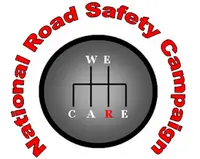More than a third of drivers admit to falling asleep at wheel
 |
As clocks spring ahead for the start of daylight savings time this weekend, roads and highways throughout the nation become a bit more dangerous, according to the National Road Safety Foundation, Inc., a non-profit group that provides free driver safety programs including it's newest, called "Recognizing the drowsy driver."
"The change throws off our internal clock, and it can take as long as two weeks for our bodies to adjust," says Adele Kristiansson, director of marketing and legislative affairs at the National Road Safety Foundation.
"Drowsiness is a condition most drivers fail to recognize, and it can be as dangerous as drinking and driving," she adds. "Studies show 60 percent of us have driven while feeling fatigued, and more than a third admit to having fallen asleep at the wheel in the past year. Drowsiness is a factor in a substantial number of traffic crashes."
Experts list several signs that should warn a driver to stop and rest:-- Difficulty focusing, with frequent blinking -- Daydreaming or not remembering the last few miles driven -- Head nodding -- Repeated yawning or rubbing eyes -- Drifting out of your lane, tailgating or hitting shoulder rumble strips
If you experience any of these warning signs, pull over at the next exit or a safe rest area and take a break or a 20-minute nap. Have a cup or two of coffee or caffeinated snacks and allow 30 minutes for the caffeine to enter your bloodstream. Don't drink alcohol or take medication.
Sleep-induced crashes are often very serious, since the driver does not take evasive or corrective action as the vehicle loses control.
Over the past 40 years, the National Road Safety Foundation has produced films and teaching materials that have been used to train millions of young drivers about the dangers of drinking and driving, speeding and aggressive driving. The Foundation's newest program, "Recognizing the Drowsy Driver," is available free by calling 1-800-SAFEPATH or visit www.nationalroadsafety.org to download it and other driver safety programs.


